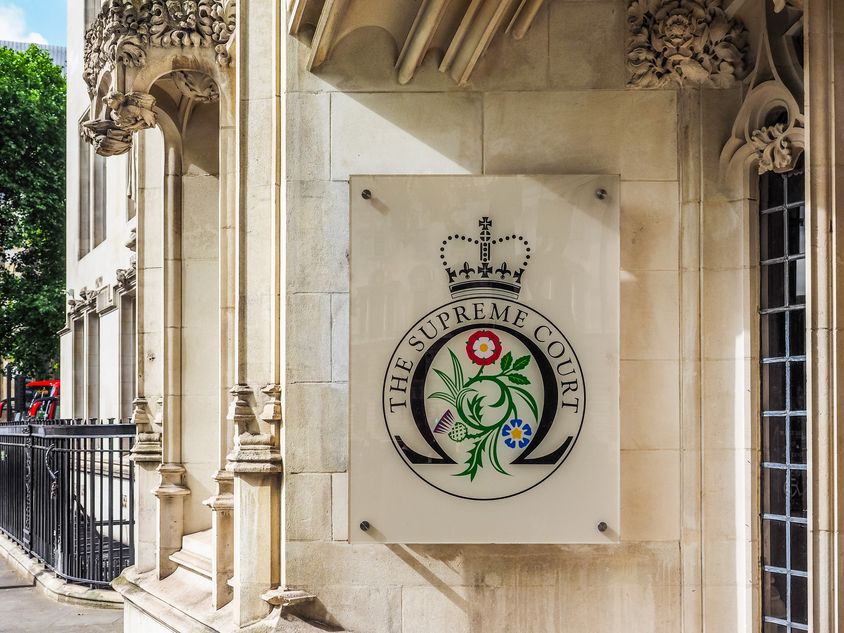Top UK court overturns Libor conviction

Tom Hayes, the former UBS and Citigroup rates trader who was the first person to be jailed for rigging Libor interest rates, had his conviction overturned on Wednesday by the UK's top court, ending his years-long fight to clear his name.
Hayes' solicitor said his conviction had been "a horrendous miscarriage of justice" that had included big legal errors by the original judge, the Serious Fraud Office and other parts of the legal system.
The Supreme Court unanimously allowed Hayes' appeal, overturning his 2015 conviction of conspiracy to defraud by manipulating Libor. He was given a 14-year sentence in 2015 and served 5.5 years, including in high security conditions at Belmarsh Prison.
Judge George Leggatt said there was "ample evidence" on which a jury could have found Hayes guilty of conspiracy to defraud, but it was not properly directed.
"The effect of the judge’s directions was to usurp the function of the jury and remove from them consideration of Mr Hayes’ defence to the allegation that he had agreed to the submission of rates which were false or misleading," Leggatt said in his judgment. "That made the trial unfair and leads to the conclusion that Mr Hayes’ convictions must be quashed."
The SFO said it would not be in the public interest to seek a retrial.
Libor was phased out in 2023. It was designed to reflect banks' short-term funding costs and was based on daily estimates from a group of banks as to how much they would expect to pay to borrow funds from each other for a range of currencies and periods.
Hayes' appeal was based on how the original judge directed the jury to only consider whether the submissions were dishonest, and Leggatt said that direction was flawed.
"Identifying the rate at which a bank could borrow funds at the specified time was not simply a matter of reading a number off a screen. It required a subjective assessment of various data sources and was a matter of opinion – particularly as the number submitted had be stated to two (or in some cases five) decimal places," the judgment said.
"Although a bank would generally be expected to borrow at the cheapest rate available, determining what that rate was typically involved selecting a figure from within a range of borrowing rates which could legitimately be regarded as a true answer to the question posed by the definition.
"The jury might well have regarded the fact that a submission was influenced by trading advantage as supporting an inference that the figure submitted was not in truth a rate at which, in the submitter’s opinion, the panel bank could borrow money at the relevant time. But it was for the jury to decide whether to draw that inference, and not for the judge to tell them they must do so because the law required it," Leggatt said.
"Conflict of interest"
Hayes was a former star yen rates trader in Japan for UBS from 2006 until 2009 and then at Citigroup for another year.
In interviews with the UK's SFO in 2013 Hayes initially admitted to acting dishonestly with others to make money by falsely submitting Libor levels. He was going to plead guilty to prevent his extradition to the US but later changed his plea to not guilty. His alleged co-conspirators were acquitted in separate trials.
Another trader, Carlo Palombo, also appealed a rate rigging conviction alongside Hayes and his conviction was also overturned on Wednesday. Palombo, a former swaps trader at Barclays, was found guilty in 2019 of conspiracy to defraud based on manipulating Euribor and was given a four-year sentence.
“This is a landmark ruling, by which the Supreme Court has made it clear that considering commercial interests when submitting Libor rates isn’t automatically dishonest or criminal," said Caroline Greenwell, partner at Charles Russell Speechlys.
Hayes and Palombo were among nine people successfully prosecuted by the SFO for rigging benchmark rates. Two pleaded guilty and seven were found guilty by juries, and Greenwell said those cases could now be reviewed.
Karen Todner, a solicitor who has represented Hayes since 2016, was scathing of the SFO and many aspects of the UK legal system.
“What Tom and the other bankers have gone through is a horrendous miscarriage of justice. There have been massive legal errors by both the judge involved in the initial conviction and I would say the Serious Fraud Office and those who represented the SFO," Todner said.
She said the only body that should bring criminal prosecutions in the UK is the Crown Prosecution Service, and not organisations such as the SFO.
"The dual role of the SFO as investigator and prosecutor creates a substantial conflict of interest, which creates miscarriages of justice," Todner said.
Charles Kuhn, partner at law firm Clyde & Co, said: “[The] ruling raises serious questions about the Serious Fraud Office’s decision-making in pursuing these complex and nebulous cases as ultimately they failed, with the Supreme Court finding the judges had conflated law and fact in Tom Hayes’ initial trial."





